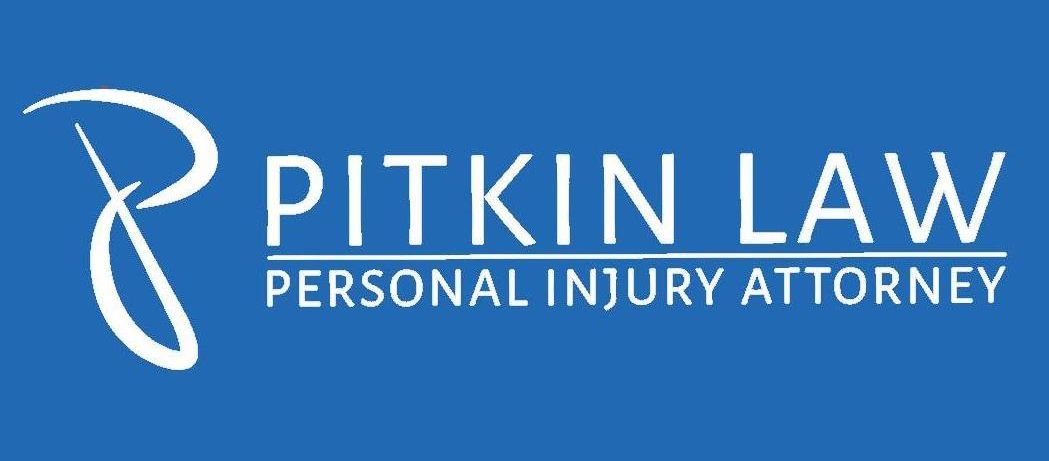Naples, Tampa & Orlando’s Personal Injury Attorney
Conveniently located in Naples, Florida, and serving clients across our communities, Pitkin Law handles cases in personal injury, auto collisions, motorcycle crashes, brain injuries, and property damage claims. We are dedicated to helping our clients every step of the way, starting with a free consultation to evaluate your case. Whether you or a loved one has suffered from an accident or your injuries have kept you out of work, call Pitkin Law for help recovering the compensation you deserve.
Our Areas Of Practice
Personal Injury
Car, Motorcycle, Truck, Pedestrian & Bicycle Accidents
Brain Injuries
Property Damage Claims
Have You Been Injured Or Lost A Loved One As A Result Of Another’s Negligence, Carelessness Or Recklessness?
Navigating the complex legal system, as it pertains to your involvement in an automobile collision or any other instance wherein you sustained personal injuries, is not something you should do without proper, competent, high-powered legal representation. Allow our team to assist you in securing medical attention, receiving financial compensation for your pain and suffering, lost wages, and for your reduced earning potential because of the injuries sustained in your incident.
Personal Injury Representation In Southwest Florida

Jerry Pitkin

Maria Rissell

Analya Sanchez

Paige Pitkin
Steps After An Accident
Pull over to a safe place.
Dial 911 immediately and wait for law enforcement to arrive.
Get witness names and contact information.
Get the names, addresses and phone numbers of those involved.
Take photos of all cars involved.
Seek treatment for any and all medical injuries.
Take photos of your injuries and include your face in them.
Take notes about what happened.
Call Pitkin Law at 239-236-9189 prior to speaking to insurance companies.
What Our Clients Say

Slide title
Jerry and his staff are not just great at their jobs, but are down to earth people who not only treat you like family, but have your best interests in mind. They went above and beyond in my case.
– Alan D.
Button
Slide title
Jerry is one of the most dedicated and well researched attorneys in the state of Florida. These gentlemen are knowledgeable and can help people in many areas of the law.
– Brandon S.
Button
Slide title
They represented me in my car accident. Mr. Jerald Pitkin always stayed on top of things, guided me for medical help, and checked on me often. He answered any questions I had along the way and never once misled me. I am just beyond Blessed!
– Barbara R.
Button
Slide title
They are very good, they help in the whole process, they are very friendly in dealing with them and they explain everything step by step.
– Arte S.
Button

Slide title
Jerry and his staff are not just great at their jobs, but are down to earth people who not only treat you like family, but have your best interests in mind. They went above and beyond in my case.
– Alan D.
Button
Slide title
Jerry is one of the most dedicated and well researched attorneys in the state of Florida. These gentlemen are knowledgeable and can help people in many areas of the law.
– Brandon S.
Button
Slide title
They represented me in my car accident. Mr. Jerald Pitkin always stayed on top of things, guided me for medical help, and checked on me often. He answered any questions I had along the way and never once misled me. I am just beyond Blessed!
– Barbara R.
Button
Slide title
They are very good, they help in the whole process, they are very friendly in dealing with them and they explain everything step by step.
– Arte S.
Button
Let Pitkin Law Help
Facing the aftermath of an accident or injury can be difficult for anyone. Trying to figure out how to proceed with a claim without the help of a qualified attorney can make that process even more difficult. Pitkin Law represents clients facing mounting medical bills, lost wages, and the emotional and financial stresses of a long road to recovery. Many injury claims may require specific filing deadlines; otherwise, you may lose the right to compensation.
Contact our office in Naples, FL, at (239) 438-1114 for your no-obligation consultation today.
Address:
3375 Pine Ridge Road #201 Naples, FL 34109
Phone:
(239) 438-1114
Fax:
239-438-1119
Email:
info@jrpitkin.com

